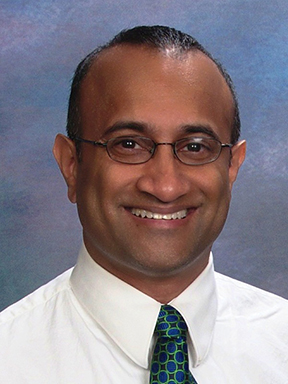The Team
Hari Nair

Where
did you grow up?
I grew up in McKean, which is a small town near Erie, Pennsylvania.
How
did you get interested in space exploration?
I was interested in astronomy for as long as I can remember. I loved watching “Star Trek” as a kid, and was very excited to follow the discoveries of the two Voyager spacecraft as I was growing up. I built a telescope when I was in college and really enjoyed observing the planets as they were always moving around and changing!
What's
your educational background?
I have a BS in Math and Physics from Gannon University, in Erie, and MS and PhD degrees in Planetary Science from Caltech. Planetary Science appealed to me as it seemed more concrete than astronomy – we can go out and touch these places! My PhD thesis explored how sunlight interacts with the martian atmosphere.
What
are your hobbies?
I enjoy biking, hiking, kayaking, and playing video games. I do one of those things more often than the other three combined. And this is awfully nerdy for even a nerdy nerd like me, but I love coding! I wrote a free solar system simulator called Xplanet in the 1990s that is still widely used. I use it to set my desktop background so I can watch MRO orbit Mars!
What's
your job on CRISM?
I help develop and maintain the software we use to schedule CRISM observations, as well as plan the observations themselves. I also wrote the Java CRISM Analysis Tool (JCAT) which is a free tool anyone can use to view CRISM data.
What
excites you about exploring Mars?
Mars is a very well studied planet. With Mars, we know enough to start asking deeper and more detailed questions than we are able to ask about most other bodies in the solar system. And of course, I would love to see a human step onto Mars sometime in my lifetime!
What
advice would you give to someone like you who wants to get involved in space exploration?
Find what turns you on and do it! You can always contribute, even if you think you’re not a “science person”. Space exploration requires participation from all kinds of people with all kinds of skills. If you’re just getting started, get a pair of binoculars and learn your way around the sky. There’s always something interesting going on up there!
